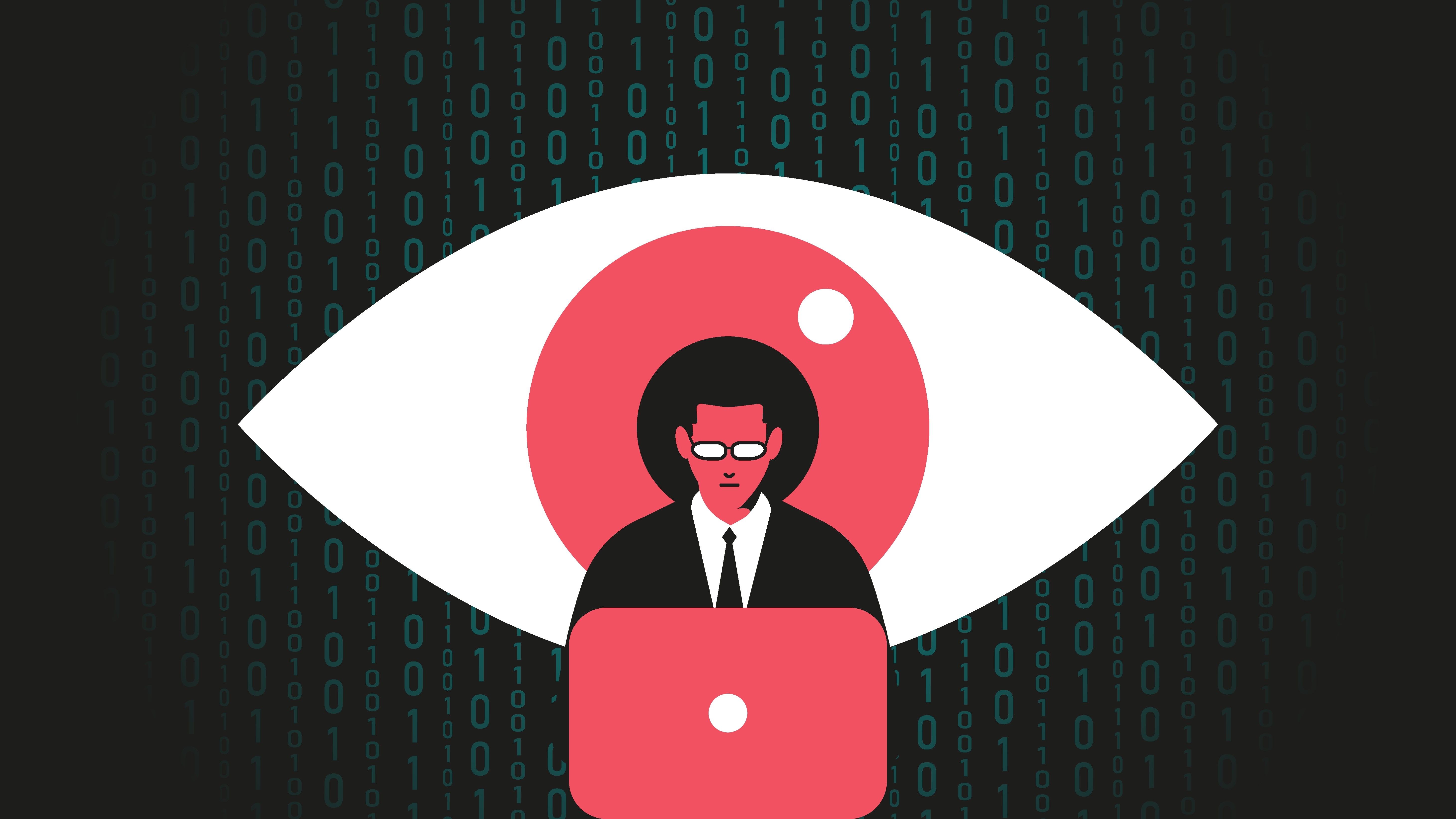Can your workplace tell that you’re using a VPN?
Just how much can your employer see – or not see?

VPNs are indispensable tools both at home and in the workplace. They don’t just let you watch your favorite content without geographic restrictions, they also offer secure connections for enterprise users who need to be able to work remotely.
However, you might be worried about whether your personal VPN usage can be detected by your workplace. The short answer is: it depends, but they probably can.
Read on and I’ll explain exactly what your workplace can and can’t see when you use a VPN, as well as how you can use one of today's best VPNs to keep yourself secure while you’re working.
What can your employer see when you use a VPN?
It’s a fair concern if you’re worried that your traffic is under more scrutiny on work networks. Admins will usually have some form of network-based intrusion detection solution in place to make sure bad actors haven’t infiltrated their systems.
This also means that all of your network traffic is being examined too, which isn’t ideal if you’re handling your own personal data on a device. You might jump to using a secure VPN to hide your browsing, but depending on the device and network you’re using, your employer can monitor your activity while using a VPN.
Unless tracking software has been installed on your device, your employer cannot see the websites you visit or the files you access
If you’re using a personal device on a work network, there are significantly more options available to you. Keep in mind that although a VPN will hide your traffic, employers can identify that you’re using a VPN by examining the encrypted tunnel that’s created. There are a few different ways trying to run a VPN through your work network might trip you up.
If your employer is relying on basic firewall rules to enact its VPN policy, you might find that connecting to your VPN on the default OpenVPN port is blocked. Depending on your VPN provider, your VPN client app comes with the option to set your connection to another port.
What’s more likely is that your employer uses a solution with some form of deep packet inspection that it can use to dynamically detect VPN traffic. These applications inspect the individual packets that travel through a network and can identify the headers VPN protocols use to manage traffic.
Some obfuscation techniques beat this approach by tunneling your traffic through an HTTPS connection so it looks like web traffic. Advanced DPI systems get around this by analyzing the actual patterns of network flow for characteristic bursts of traffic that VPN connections generate.

The point here is that you’re best off checking your employer’s policy on personal devices over the network. You’re probably okay, but if you can’t use a VPN it’ll be fairly hard to keep your use of one completely secret. Unless tracking software has been installed on your personal device, your employer cannot see the websites you visit or the files you access.
While you’ve got a fair amount of leeway if you’re allowed to connect to your company’s network with your own device, using a device provided by your employer leaves you with only as much privacy as your employer allows you.
Some workplaces install monitoring software on company-issued devices to track keystrokes, applications used, and websites visited. While a VPN can hide your network traffic, in this case, software is recording your website visits directly from the browser. Using a VPN doesn’t stop this kind of tracking.
Even if you do use a VPN, your IT administrators can monitor all traffic passing through the corporate network, including VPN connections. Being able to access an external VPN server might be possible, but that doesn’t mean it’s a good idea.
The traffic could be flagged as an unusual event that warrants investigation from a security team. This might seem over the top, but VPN traffic is an easy way for hackers to send sensitive company data outside the network.
This is partially why many companies prohibit the use of VPNs on work devices, but it’s also to prevent you as an employee from bypassing firewall settings or accessing restricted websites. It won’t be obvious what you’re doing at first glance from the network traffic, but it’ll be obvious that you’re up to something. If discovered, you could end up facing disciplinary action.
Why use a VPN at work?
You should have a better idea of the issues with VPNs in the workplace now, but there are still a few reasons to use them:
- Staying Secure on Public Wi-Fi: Even if you aren’t regularly remote working, it’s still important to consider your data safety for when the need arises. Traveling for work means you’ll end up passing plenty of public Wi-Fi locations, which are a prime prowling ground for hackers looking for unsecured connections. A VPN encrypts your connection, protecting sensitive data from hackers.
- Boosting Privacy: A VPN masks your IP address and encrypts your traffic, allowing you to access content while masking your work IP. This might be necessary if you’re working in marketing research or cybersecurity, or you might not trust your ISP in the country you’re in. Either way, a VPN ensures your online activities remain private, even on shared or monitored networks.
- Protecting File Transfers: Some VPNs offer the ability to share files through the network between client devices, providing an extra layer of encryption that makes data impossible to intercept. When sending sensitive files or documents, a VPN adds an extra layer of security, reducing the risk of interception or theft.
- Unblocking Websites: Just because you’re on a work ISP doesn’t mean you won’t encounter region-restricted content during your workday. VPNs can change the location you appear that you’re connecting from so you can access geo-blocked sites, though this should be done responsibly and in accordance with your workplace’s policies.

Sam Dawson is a cybersecurity expert who has over four years of experience reviewing security-related software products. He focuses his writing on VPNs and security, previously writing for ProPrivacy before freelancing for Future PLC's brands, including TechRadar. Between running a penetration testing company and finishing a PhD focusing on speculative execution attacks at the University of Kent, he still somehow finds the time to keep an eye on how technology is impacting current affairs.
You must confirm your public display name before commenting
Please logout and then login again, you will then be prompted to enter your display name.